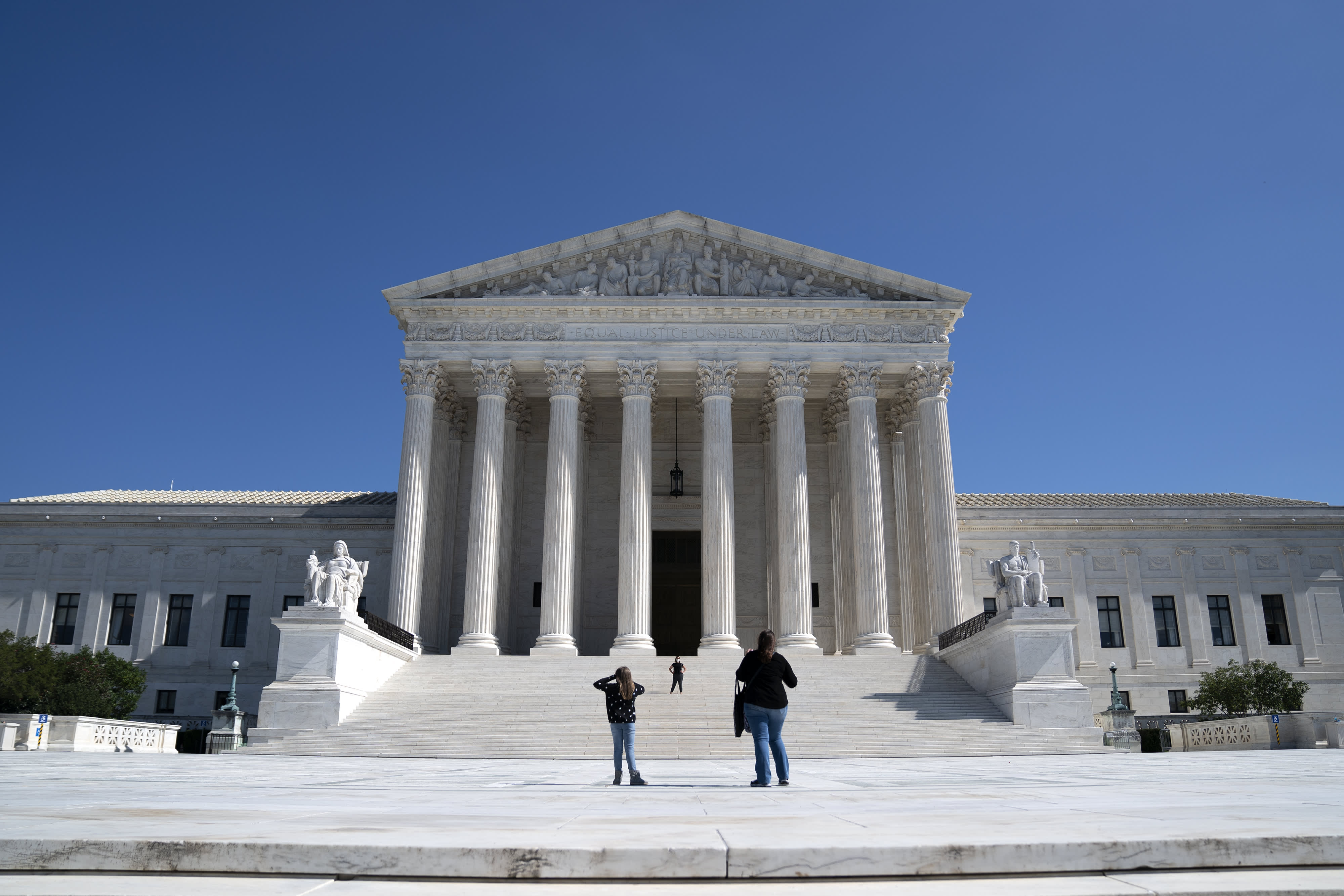
The U.S. Supreme Court stands in Washington, D.C., U.S. on Tuesday, Oct. 6, 2020. Alphabet Inc.’s Google and Oracle Corp.
Stefani Reynolds | Bloomberg | Getty Images
Things got technical at the Supreme Court on Wednesday as the justices heard arguments from Google and Oracle in a blockbuster copyright dispute that has captivated Silicon Valley for a decade.
At the end of an hour and a half of arguments, Justice Stephen Breyer, who at one point read aloud some code, seemed to be the only sure vote. The liberal justice appeared to lean toward Google.
Several of the other justices, including Chief Justice John Roberts, suggested they were sympathetic to Oracle’s copyright claims. Still, they appeared reluctant to rule in Oracle’s favor because of arguments made by leading computer scientists and Microsoft, in friend-of-the-court briefs, that doing so could upend the industry.
Justice Neil Gorsuch also repeatedly raised questions about whether a lower court that sided with Oracle was sufficiently deferential to a jury’s finding in favor of Google, suggesting the top court could send the case back without a definitive ruling.
The case was among the first to be heard by the Supreme Court in its 2020 term, which began Monday. Arguments were conducted by telephone and streamed live to the public as a result of the Covid-19 pandemic. It was also one of the first since the passing of Justice Ruth Bader Ginsburg last month. Based on her prior writings, Ginsburg was expected to side with Oracle in the matter.
The dispute concerns about 11,500 lines of code that Google used to build its popular Android mobile operating system, which were replicated from the Java application programming interface developed by Sun Microsystems.
Oracle, which acquired Sun in 2010, sued Google shortly afterward arguing that Google’s use of the code violates its ownership rights. Google, on the other hand, has said the code it copied was purely functional, and that its own engineers authored all of Android’s code that could be said to be creative and subject to copyright protection.
The dueling conceptions of the code at issue fueled much of the legal dispute ahead of arguments. At stake is not just the $9 billion that Oracle has said that it is owed but also the the law of copyright in the internet era, and which types of code will be subject to protection.
Google’s attorney Thomas Goldstein stressed during arguments that the company had written all of the code that could be written differently from the way that Oracle had written it. But, he said, for some purposes “there are no substitutes.”
“The long settled practice of reusing software interfaces is critical to modern software development,” Goldstein argued. “Because there is only one way, there is no copyright protection.”
Oracle’s attorney, Joshua Rosenkranz, countered that Google did have options that did not include using Oracle’s code, albeit expensive ones.
“The Copyright Act does not give Google a pass just because it would be expensive to recreate our expression,” he said.
Google won twice before a district court in California, but both of those decisions were later reversed by the U.S. Court of Appeals for the Federal Circuit. The Supreme Court was scheduled to hear the case last term before it was delayed, along with a set of other cases, as a result of the pandemic.
In a statement after arguments, Oracle’s general counsel Dorian Daley said she was “extremely pleased” with how they went. A spokesperson for Google did not immediately provide comment.
The case is formally known as Google v. Oracle America, No. 18-956.
This is breaking news. Check back for updates.




